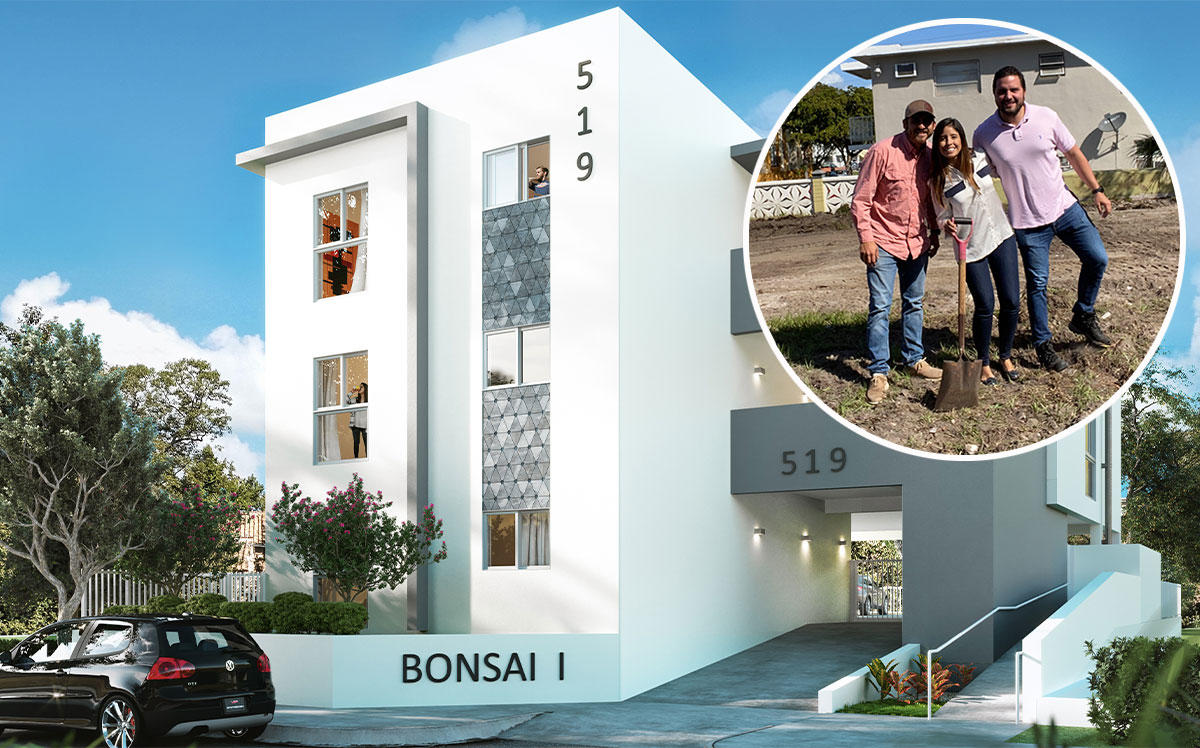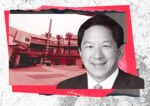Trending
Developer breaks ground on mixed-income rentals in Little Havana
Two studios will be set aside for affordable housing, with rents starting at $480/month

A Miami developer is taking advantage of the city’s mixed-income housing program to build a rental development in Little Havana.
Forth Development, founded by Ivanna Jimenez, Fernando Murzi and Jesus Luongo, broke ground on Bonsai I, an eight-unit building at 519 Southwest Fifth Avenue in Miami. Under the city’s mixed-income program, the developer can build twice as many units if affordable and workforce housing are included. Developers can receive a reduction in parking and the ability to defer impact fees.
Jimenez said two studios will be set aside for affordable housing, asking between $480 a month and $760 a month. Two one-bedrooms with a den will ask $1,550 and four two-bedroom, two-bathroom units will rent for $1,750 to $1,800 a month. The project is geared toward renters who work in downtown Miami and Brickell.
The building will also have six parking spaces, an outdoor grilling and seating area, and a dog park.
CLAD Architecture designed the building. Ocean Bank is providing the $810,000 construction loan.
Jimenez said the development group wants to build more projects similar to Bonsai I, but it has not acquired more land yet.
Co-living operator Common and short-term rental operator Stay Alfred have leased new apartment buildings in Little Havana.
Stay Alfred opened in late August at 761 and 765 Northwest First Street, and took an additional two townhouses at 769 and 771 Northwest First Street.
Earlier this year, the Miami City Commission accepted the data of an affordable housing master plan created by Florida International University. City commissioners want to analyze the report’s suggestions on how to leverage $85 million in bond money for affordable housing to up to $6 billion, in order to build 32,000 affordable units over the next 10 years.




